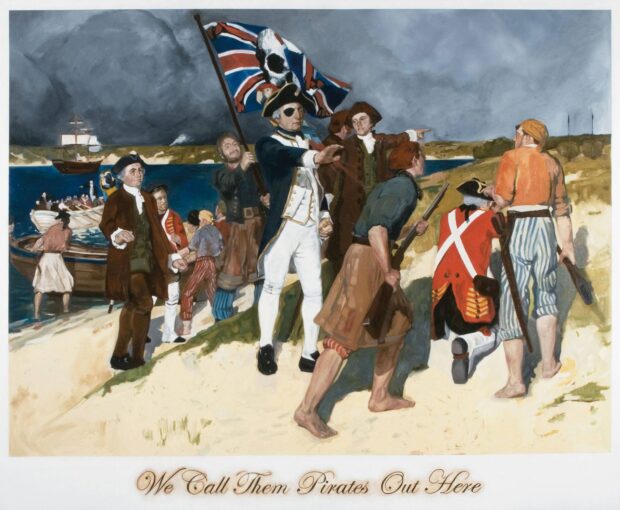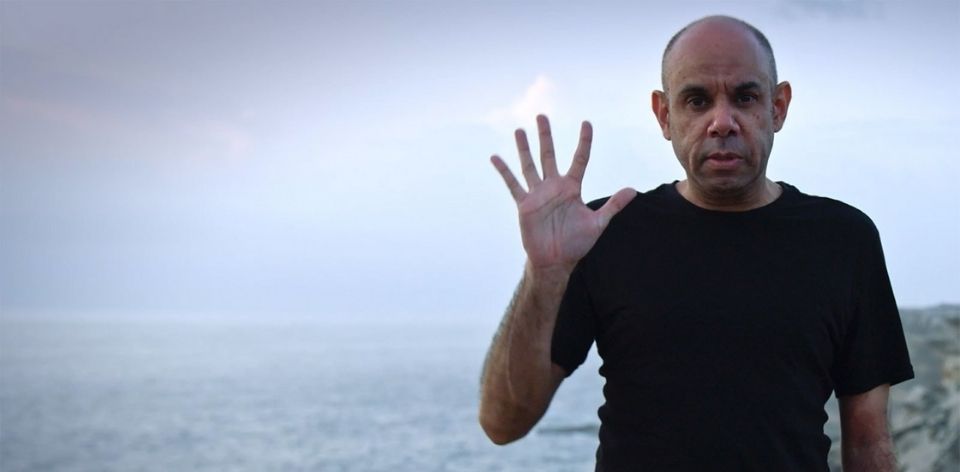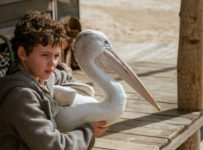This year has thrown up a lot of trauma, and the 250th anniversary of Captain Jame Cook’s arrival in Australia has been one of the more divisive. His crew spent only eight days in the land the traditional owners called Kamay, modern day Botany Bay, an event that continues to be both celebrated and contested.
Director Steven McGregor and performer/poet Steven Oliver take the opportunity to ask, “In 2020, does Australia have a blurred vision” of it’s own history? After all, it seems that any attempt to reframe colonial narratives from the perspective of Australia’s First Peoples is met with aggression from certain conservative quarters.
Oliver explains that what he’s attempting to do with this film is collaborating with Indigenous artists and musicians craft a new songline for 21st century Australia. “Songlines,” he argues, “should be a part of Aboriginal history as they’re taught in schools.” It’s a way of shifting away from textbook perspectives of Cook the Explorer as the nation’s official creation myth. Hip hop artist Daniel Rankine (aka Trials) is more blunt: “You can’t punch me in the face and tell me it doesn’t hurt.”

Oliver and McGregor aren’t the first to re-examine Australia’s relationship with its own history. A few years ago, Warrick Thornton took a cheeky look at how symbols can be twisted by colonial powers in We Don’t Need a Map. With Oliver as host, LOOKY LOOKY HERE COMES COOKY follows a similarly irreverent, but no less thought provoking,
In Oliver’s inimitable, code-switching style – familiar to audiences from television’s Faboriginal and Black Comedy – he (literally) shimmies across the continent speaking with artists and musicians like Rankine, Kev Carmody, Fred Leone and Alice Skye. At times it feels like the making-of documentary of a music video, but that’s kind of the point. In fact, that’s exactly what this is, including Oliver’s unique performance art that incorporates statistics.
“They lock us in the room with this thing called Australia.”
While running for less than an hour, McGregor and Oliver pack a lot of content into their documentary. At one point, Oliver visits a Captain Cook Hotel, and eats a Cook burger, to explore the obsession with naming things after a British sea captain. As one person from Cooktown adds, “We’re all Cooked out up here.”
Through this he points out the cultural differences between propping up the dead and letting them go. It also demonstrates how key figures and events, such as Multuggerah and the Battle of One Tree Hill, have been largely forgotten in texts. Like Thornton’s film, cut-out animation (think a more sophisticated Monty Python) is also used to concisely summarise moments in history, refuting the idea that the land was empty or just given up at the moment of colonisation.
In a Q&A that accompanied the MIFF screening, McGregor explained that there was another round of shooting that was meant to take place in the Torres Strait Island but was interrupted by COVID pandemic restrictions. While some of these setbacks are evident in the short runtime, it will hopefully leave viewers with lots of food for thought. “Are you part of the country’s problem,” Oliver seems to conclude, “or the solution?”
2020 | Australia | DIRECTOR: Steven McGregor | WRITER: Danielle MacLean, Steven McGregor, Steven Oliver | CAST: Steven Oliver, Daniel Rankine (Trials), Nathan Bird (Birdz), Fred Leone, Mo’Ju, Alice Skye, Kev Carmody, Paul Carmody, Mau Power | DISTRIBUTOR: MIFF 2020 (AUS) | RUNNING TIME: 52 minutes | RELEASE DATE: 6-23 August 2020 (MIFF)






